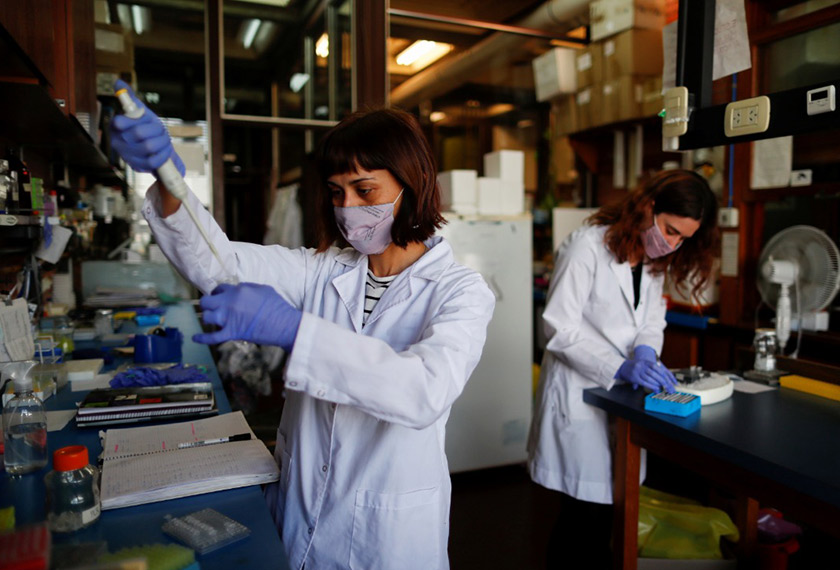Are Malaysian fresh graduates ready to be part of climate change resolutions?

With the worsening climate change crisis in Malaysia, we need urgent changes made in Malaysian universities to ensure that fresh graduates are ready to hit the ground running in our growing climate-enhancing green workforce in Malaysia. - Filepic
CLIMATE change is a global crisis, and it is increasingly affecting every corner of the world. In Malaysia, one of the ways to tackle the climate crisis is to produce more capable scientists and environmental study experts through higher education in universities.
Dr. Nurul Salmi Abdul Latip, Senior Lecturer in Sustainable Development from the School of Biological Sciences, Universiti Sains Malaysia (USM) says; “Malaysian universities are offering more opportunities for students undertaking Bachelor Degrees in the field of environmental studies. Undoubtedly, the increasing number of graduates and scholars in environmental studies from Malaysian universities will be a huge asset for the nation, and invariably, the world.”
Ranging from faculties like the Faculty of Forestry and Environment in Universiti Putra Malaysia (UPM), to programmes and majors like Bachelor of Engineering (Honours) Environmental Engineering in University Malaysia Perlis (UniMAP), there are a wide variety of full time and part time courses to educate passionate students who are interested in environmental studies. Graduates from these courses can enter the job market in various sectors - from government, non-governmental organisation, industry, research and even the academic sector itself - to be part of real-world, climate change resolutions.
With the growing number of programs and studies in this field, we need to ask the question: “How prepared are our fresh graduates and scholars in contributing to climate change resolutions in a climate-enhancing, green workforce?”. To answer that, we need to know what exactly is a climate-enhancing green workforce, and how it differs from green jobs.

How prepared are our fresh graduates and scholars in contributing to climate change resolutions in a climate-enhancing, green workforce? - Reuters
According to the International Labour Organisation, green jobs are defined as ‘decent jobs that contribute to preserving or restoring the environment, be they in traditional sectors such as manufacturing and construction, or in new, emerging green sectors such as renewable energy and energy efficiency.’
The green workplace is simply defined as a workplace that is environmentally sensitive, resource efficient, and socially responsible.
Take for example, environmental engineering, a branch of engineering that is concerned with protecting people from the effects of adverse environmental effects, such as pollution, as well as improving environmental quality. This branch of engineering is part of a climate-enhancing workforce. Civil engineering, on the other hand, is not a green job, but it can become a climate-enhancing green workforce by ‘greening’ its existing skill sets and operations.
Fresh graduates are at a disadvantage as most jobs require experience and expertise. Siti Joanni Matlan, an Environmental Executive at Kiwiheng Environmental Consultants, said “The jobs and positions in our rising environmental-based workforce in Malaysia mostly demand a level of experience and expertise.
Generally, these opportunities are not open to fresh graduates, unless stated otherwise''. Even though this situation is similar to other fields and sectors, the job market in our climate-enhancing green workforce is small and limited. Despite the willingness of fresh graduates to learn, grow and serve in this area of work, the jobs are in short supply.
Gukaaneswaran Kaliyappan, a fresh graduate with a Bachelor’s Degree in Biodiversity Conservation and Management from University Malaysia Terengganu (UMT), has aspirations to enter the green workforce to be a field biologist and conservationist in Malaysia, despite the position being underpaid compared to other fields. This mismatch of expertise demonstrates that the climate-enhancing green workforce in Malaysia does not have enough opportunities and positions for new graduates every year.
According to Geo-6 for Youth by the United Nations Environment Programme (UNEP), skill mismatching is an ongoing issue as Malaysia and other countries gradually transform to a green economy. Dr Foong Swee Yeok, a Senior Lecturer from the School of Biological Sciences, USM, explains that science students are trained specifically to be analytical, allowing them to distill complicated information into communicable ones.
She adds, however, that analytical training does not guarantee effective communication skills among science students, showing some level of skill mismatch. Fortunately though, Dr. Foong added, “That is why we have minors and audit courses to choose from, in order for our students to enhance their external skills”.

Students need to be resourceful, no matter the field of work. - Pexels
In addition to the role played by Malaysian universities, it is also equally important for fresh graduates to be resourceful and equip themselves with necessary and complementary skills and experiences.
Lim Jia Xin, an Environmental Science and Technology undergraduate from UPM mentions that “it is important for the university and faculty to have a closer look at the issue of students not being able to master the skills from their syllabus, such as Geographic Information System Mapping (GIS), R studio, and SPSS Statistics” - all important skill sets in real-world jobs.
On the other hand, Logan Raj Rajendran, an JPA Scholared Marine Science undergraduate from University Malaysia Sabah (UMS) argues that it is equally important for students themselves to go outside of the university setting to learn other important skills and knowledge.
“Students need to be resourceful, no matter the field of work. They need to explore beyond the mainstream climate-enhancing green workforce”, said Dr. Nurul Salmi. She advises fresh graduates to seek internships after their graduation - if not during their undergraduate studies to further enhance their skill and experience.
Siti Joanni Matlan advises a similar stance, saying that “fresh graduates need to realise the specific needs in the Malaysian climate-enhancing green workforce and prepare themselves by increasing their level of competencies for their future career development. Good knowledge and practical experience on skills by Professional Certification such as the International Organisation for Standardisation (ISO) series, and environmental compliance skills can come in handy for fresh graduates in environmental studies”.
With the worsening climate change crisis in Malaysia, we need urgent changes made in Malaysian universities to ensure that fresh graduates are ready to hit the ground running in our growing climate-enhancing green workforce in Malaysia.
Outdated knowledge, technology and skill set would need to be updated in a continually-shifting green workforce. Malaysian universities would also need to continuously update their syllabi, keep abreast with green technology and improve the preparation for their graduates entering this workforce.
* This story has been originally produced as part of the ‘PANAS! Climate Change Stories in Malaysia’ project organised by Science Media Centre (SMC) Malaysia, in collaboration with British High Commission Kuala Lumpur and EcoKnights.
** Poorani Kannan is a final year applied biology degree student in USM, majoring in Environmental Biology and minoring in Psychology. She has a keen interest and care for climate and environmental issues.
Must-Watch Video
Stay updated with our news

